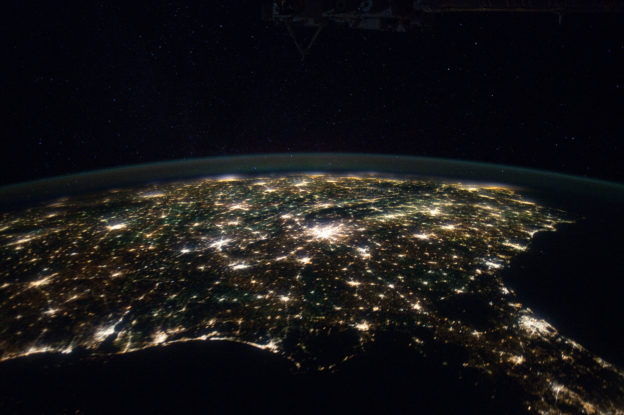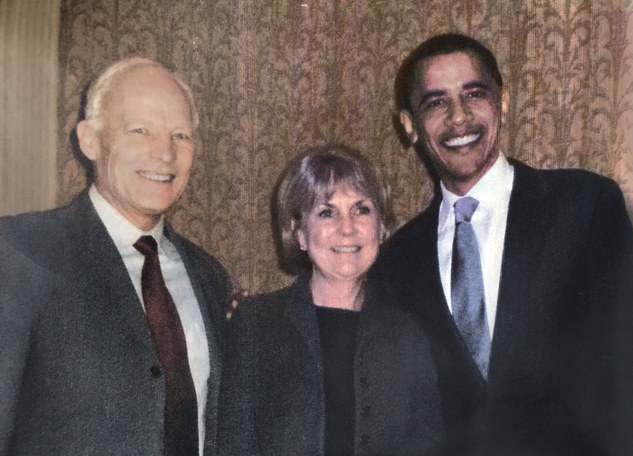The recent ISIS attacks in Egypt, Lebanon, and Paris put a chilling edge on the holiday season and the prospects for planet earth. ISIS represents a lethal ideology based on antiquated ideas.
And, most importantly, it is committed to an apocalypse.

To me, ideas are more about freedom and generating possibilities for a better future; ideologies are more about control and implementing strict rules stuck in the past.
Clearly there are good ideas and bad ideas as well as good ideologies and bad ideologies. I believe, however, that the way out of this mess is through the generation of great ideas for creating a better future – not rigidly clinging to ideologies of the past, willfully ignoring new discoveries, and blindly plunging into the abyss of terror and violence. The grid below can be used to map different ideas and ideologies. I will pass on the temptation to map other ideologies into this grid:
| Good Ideas | Bad Ideas | |
| Good Ideology | ||
| Bad Ideology | ISIS |
There is plenty of evidence to suggest that ISIS is a backward-looking ideology with heinous ideas for establishing its presence and power. Here are some key facts drawn from an article in the Atlantic Monthly:
- ISIS seized Mosul, Iraq, last June, 2014, and already rules an area larger than the United Kingdom.
- Abu Bakr al-Baghdadi has been its leader since May 2010.
- The inflow of jihadists to ISIS from around the world is unprecedented in its pace and volume, and is continuing.
- ISIS rejects peace as a matter of principle and hungers for genocide.
- ISIS religious views make it constitutionally incapable of certain types of change, even if that change might ensure its survival.
- ISIS considers itself a harbinger of—and headline player in—the imminent end of the world.
- ISIS wields absolute power over 8 million jihadists.
- The Islamic State requires territory to remain legitimate, and a top-down structure to rule it.
- ISIS is committed to returning civilization to a seventh-century legal environment, and ultimately to bringing about the apocalypse.
- ISIS is very Islamic. While it has attracted psychopaths and adventure seekers, drawn largely from the disaffected populations of the Middle East and Europe, the religion preached by its most ardent followers derives from coherent and even learned interpretations of Islam.
- Virtually every major decision and law promulgated by ISIS is intended to follow the prophecy and example of Muhammad.
- ISIS regards Shiism as innovation, and to innovate on the Koran is to deny its initial perfection. That means roughly 200 million Shia are marked for death. So too are the heads of state of every Muslim country, who have elevated man-made law above Sharia by running for office or enforcing laws not made by God.
- ISIS is committed to purifying the world by killing vast numbers of people.
- Slavery, crucifixion, and beheadings are not something that freakish [jihadists] are cherry-picking from the medieval tradition. Islamic State fighters “are smack in the middle of the medieval tradition and are bringing it wholesale into the present day.”
- Leaders of the Islamic State have taken emulation of Muhammad as strict duty, and have revived traditions that have been dormant for hundreds of years.
- ISIS enslaves “infidels” and takes their women as concubines—a firmly established aspect of the Shariah.
- According to ISIS any Muslim who dies without pledging himself to a valid caliph and incurring the obligations of that oath, has failed to live a fully Islamic life.
- There is still a steady inflow of foreigners joining ISIS in Syria, ready to give up everything at home for a shot at paradise in the worst place on Earth.
- The caliph commands obedience and those who persist in supporting non-Muslim governments, after being duly warned and educated about their sin, are considered apostates.
- The modern international system, born of the 1648 Peace of Westphalia, relies on each state’s willingness to recognize borders, however grudgingly. For the Islamic State, that recognition is ideological suicide. The goal of ISIS is to establish an Islamic state that doesn’t recognize borders
- Baghdadi, the ISIS leader believes that the application of Sharia in the caliphate and the expansion to contiguous lands are paramount.
- The land that ISIS controls, while expansive, is mostly uninhabited and poor.
- It’s easy to call the problem of ISIS “a problem with Islam.” The religion allows many interpretations, and Islamic State supporters are morally on the hook for the one they choose.
- ISIS jihadists believe that they are personally involved in struggles beyond their own lives, and that merely to be swept up in the drama, on the side of righteousness, is a privilege and a pleasure.
- ISIS holds the imminent fulfillment of prophecy as a matter of dogma. It is ready to cheer its own obliteration because its adherents believe they will receive divine succor if they stays true to the Prophetic model.
It seems to me that the list of facts above fully justifies my decision to put ISIS in the box of bad ideology with bad ideas. Unfortunately, ISIS is not just bad—it’s dangerous. ISIS consists of terrorist thugs with terrible ideas. And confronting them with these facts would simply solidify their commitment to ISIS. Words will not persuade them. Bombs will not dissuade them. They will only bolster their resolve and their recruitment efforts. So what is the answer?
I believe the world community (including Russia, China, Saudi Arabia, Turkey, Europe, Iran, and the US) needs to mobilize its resources, unify its resolve, and crush ISIS. I do not propose this lightly. As readers of my posts know, I believe every war since World War II has engaged in excessive force, with insufficient planning and follow-up, and has produced unintended negative consequences. In fact, I still question the wisdom of dropping bombs on Japan and Dresden at the end of the war. I unequivocally believe that the Vietnam, Iraq and Afghanistan wars were huge mistakes, completely unnecessary, and entirely counter-productive—witness ISIS. In spite of my abhorrence for war and my lack of confidence in military solutions, however, I believe the problem with ISIS requires a concentrated and collaborative effort to defeat ISIS which means killing Baghdadi and denying ISIS a base of operations. With no leader and no land, ISIS will find it difficult to carry out its mission. I understand that this action may bolster their recruitment efforts, but with no sources of funding and no central coordination, their evil efforts will be minimized.
And then, perhaps, we can return to the business of generating creative ideas in response to changing human, organizational, and environmental issues. Maybe with enough good ideas, we won’t need ideologies to limit their possibilities.
Also published on Medium.




[…] it seems to me that human evolution is a two-step process. First, as a civilization, we need to create the conditions in which people are free from fear; and then, individually, we need to deal with our own fear of freedom. There is a collective […]